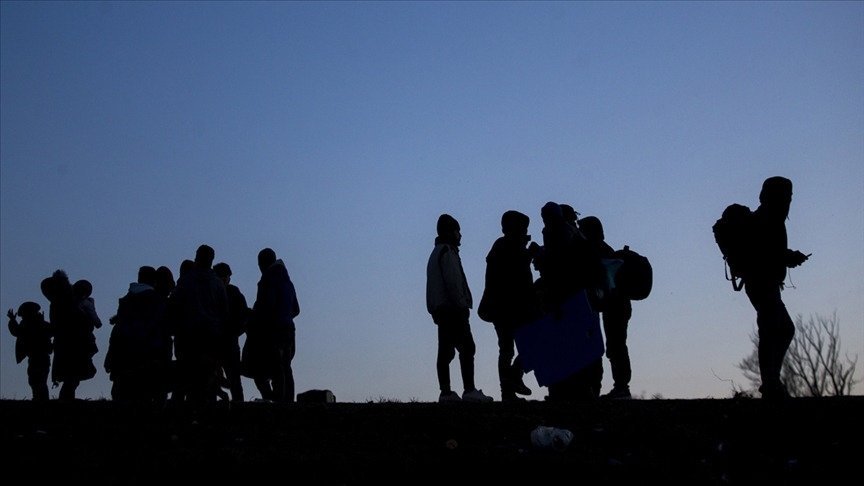Europe began its Afghan crisis with a colossal mistake.
Afghan cities and provinces were rapidly falling to the Taliban, often without resistance. Knowing its days were numbered, the Afghan government begged European countries to temporarily halt deportations of rejected Afghan asylum seekers.
European embassies in Kabul supported this assessment.
On 5 August, however, six ministers of the interior, justice, and migration in EU member states – including Austrian minister Karl Nehammer, German minister Horst Seehofer, and Dutch state secretary Ankie Broekers-Knol – felt the need to express their disapproval.
The deportations, they wrote in a letter to the European Commission, urgently had to continue. Especially in this dire situation: “Stopping sends the wrong signal and is likely to motivate even more Afghan citizens to leave their home for the EU.”
Ten days later, Kabul fell.
Foreign policy, some say, is domestic policy.
Europeans criticise US president Joe Biden for giving Americans what they have been asking for, for years: an end to the war in Afghanistan, which began with a clear goal – punishing those responsible for the 9/11 attacks – but had, long ago, morphed into an expensive occupation on auto-pilot.
Many Europeans also blame Biden for barely consulting Nato partners. But Europe’s response to the troop withdrawal was equally self-centred.
Some 20 years ago, several European countries went into Afghanistan with the US – according to Article 5 of the North Atlantic Treaty, an armed attack against one Nato country is an armed attack against all.
US plans to pull out of Afghanistan this summer were known, and generally supported, in Europe. On his first visit to Europe as president, last June, Biden briefed European leaders on his withdrawal plans.
Now, with the same Taliban that was chased out 20 years ago firmly back in power, Europeans point their fingers at the US, moaning that the US is finished as a superpower and the transatlantic alliance is in disarray.
Europe must realise that the world is rapidly becoming bi-polar again, with China and Russia using every occasion to cement an anti-Western alliance across the globe. We don’t really have a choice.
And while these geopolitical events are unfolding, Europe just talks about sending back a couple of asylum seekers – obviously for domestic reasons.
What are the numbers?
Any idea how many asylum seekers were deported to Afghanistan last year, from across the European Union’s 27 countries? A grand total of 1,200. And of those 1,200, 1,000 left Europe voluntarily (many were given money) while 200 went against their will.
Why were so few of them deported? Well, one of the reasons is that not many Afghans, or any others, are arriving in Europe anymore. To keep out migrants, Europe has also closed itself off to real refugees. Europe has finally become Fortress Europe.
Thankfully, four ministers of the six who signed the 5 August letter have by now suspended the deportations. This includes the Belgian minister and his liberal right-wing Dutch colleague who, it appears, had signed the letter while her coalition partners were away.
Only Greece and Austria continue to insist, even as deportation flights cannot even land at Kabul Airport at the moment. Greece has anyway allowed most Afghans to walk to northern Europe long ago, and is decidedly pushing any newcomers back to Turkey.
Austrian conservative interior minister Karl Nehammer, who likes to invite TV crews for individual deportations and talks about migration in hydraulic terms like “flood” and “influx”, never forgets where his main political rivals are positioned: on the far right.
Before his FPÖ party starts talking about stricter migration policies, Nehammer has already implemented them. Austrian media report that his latest plan is to discuss the resumption of deportation flights with the Taliban.
It is often said that politicians behave this way because of the “trauma” of the 2015 refugee crisis, when some 1 million people entered the EU. But 2021 is not 2015 – far from it.
While it was easy to get to Europe then, it has become nearly impossible now. From Afghanistan to Europe, everyone is building walls, putting elite troops on the border, and doing pushbacks at sea – even Turkey and Iran.
In Greece, barely 1,500 people arrived this year. No wonder experts say they expect 90 to 95 percent of Afghans now fleeing their country will stay in the region.
Rather than mentioning this and calming fears about a “mass influx”, however, many European politicians choose to fan these fears.
Geneva Refugee Convention
Refusing entry to those who are persecuted or sending them back to a country where they risk prosecution – an act known as refoulement – is prohibited according to the Geneva Refugee Convention, which Europe helped to write in 1951.
The Convention stipulates that fleeing people must be given the opportunity to ask for political asylum. Countries around the world have conveniently ignored the Convention for years, leaving the US and Europe as the least risky options.
Now, Europe has also started to prevent people from asking asylum. By erecting ever more bureaucratic, legal, and physical barriers, it is denting the Convention.
Gerald Knaus, the ‘architect’ of the 2016 refugee deal between the EU and Turkey and author of the book Welche Grenzen brauchen wir?, compares Europe to Switzerland, which remained virtually closed to refugees from 1938 to 1945, trapping many who were then murdered by the Nazis.
This is certainly a harsh judgment. But he is not wrong.
The key image of the messy American withdrawal from Afghanistan may be desperate Afghans clinging to military planes taking off in Kabul.
Former UN under-secretary-general Jean-Marie Guéhenno says this horrific situation should push the EU to “agree on generous criteria for refugees, agree on an indicative target for Europe” – agreeing on fixed quotas would be a violation of the Convention, as each case must be assessed on its individual merits – “and agree on percentages for each country”.
But some EU member states have been objecting to refugee distribution for years. It could take many more years before a compromise is reached, which will likely take the form of the lowest common denominator – bringing us down to the level of people such as Austria’s Nehammer.
With some in the EU failing to live up to its values and others conveniently looking the other way, a coalition of some willing has emerged on Afghanistan: a few large, Western countries leading by example, evacuating Afghans in real need.
Saving lives – this is what Germany, Italy, France and Spain are now doing – bilaterally. They work with Canada, with the US, the UK. Elections may come up in France and Germany, but still they are doing it.
Thank goodness for that. It will not solve all the problems, but at least it wipes away a little bit of the European disgrace.
By CAROLINE DE GRUYTER
Source: EU Observer



